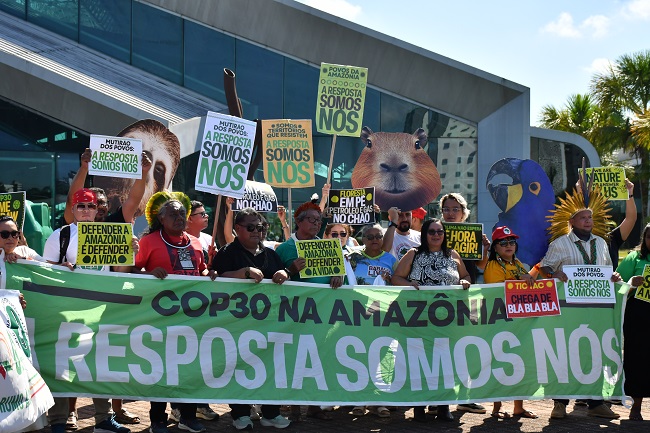After twelve long days in Geneva, the latest round of talks on a global plastics treaty (INC-5.2) concluded with frustration. Plastic pollution is a major global threat, impacting both the environment and human health, and the treaty aimed to stop the 10 million tonnes of plastic waste flowing into the Earth’s oceans each year.
Despite nearly two weeks of work, governments failed to agree on a path forward, leading some to call the talks a failure. The proposed drafts were weak, relying on voluntary promises that wouldn’t have solved the plastic crisis, leaving delegates exhausted and uncertain about what’s next.
But this is not the end.
Multilateral negotiations are inherently difficult, forcing governments with different interests to the same table to listen and negotiate. While this work can feel distant from people’s daily struggles with pollution and waste, the agreements forged in these rooms directly shape national laws, corporate regulations, and global standards. They decide whether the fossil fuel and petrochemical industries will be held in check or allowed to continue flooding the world with plastics that harm ecosystems and communities.
A majority of countries continue to demand a strong treaty, and the push for action is growing.
Villains and Heroes
A familiar pattern of opposition has emerged, similar to the annual UN climate negotiations. With over 99% of plastics derived from chemicals sourced from fossil fuels – petrostates, and the fossil fuel industry flooded the negotiations with lobbyists. Countries like the U.S., Saudi Arabia, Kuwait, and Iran pushed for weak measures and used tactics to delay decisions.
Yet, there were also heroes. The Small Island states, along with many others, including Colombia, Canada, Panama, Mexico, Chile, Ghana, Norway, the United Kingdom, and the European Union, stood strong. They advocated for a treaty based on science, justice, and human rights. Civil society groups, Indigenous leaders, and frontline communities also brought powerful voices to the room, reminding governments who they are truly fighting for.

Activists stage a protest during the final days of the plastics treaty negotiations at the United Nations offices in Geneva on August 13, 2025. Photo: AFP
The Bigger Picture: Looking to COP30
The struggle over the plastics treaty highlights what’s at stake when global crises meet global politics: the health of our planet and our collective ability to address urgent issues that no nation can solve alone. In a few months, COP30 in Belém, Brazil, will be the ultimate test of whether countries can work together to protect people and the planet.
Plastics and climate change are interconnected problems, both rooted in fossil fuels. The same countries and lobbyists who obstruct climate action are also hindering progress on plastics. Brazil, the COP30 host, has already faced criticism for siding with major oil producers during the plastics talks.
While the Geneva negotiations showed how powerful interests can stall action, COP30 must demonstrate that countries can prioritize communities and ecosystems over short-term gains. It’s more than a climate summit; it’s a test of multilateralism itself. Governments will again face a choice: stand with polluters or stand with people. The same villains will arrive with money and lobbyists, while heroes will bring science, solidarity, justice, and voices from communities already impacted by the worsening climate crisis.

In July 2025, the “People’s Gathering” rallyed outside the Belém Convention Center, calling for real public participation in COP30. Photo: João Paulo Guimarães
What Comes Next
The future of the plastics treaty is uncertain. Governments could continue the current process, move the talks elsewhere, or even create a new treaty. However, one thing is clear: the world needs a strong, enforceable, and fair treaty that protects health, human rights, and the environment.
The climate and plastics crises are global problems that demand global cooperation. It’s essential that those who seek to weaken and ignore scientific evidence are held accountable. The Geneva negotiations may not have been a success, but they were far from a failure. The road to Belém is now open, and the world is watching.